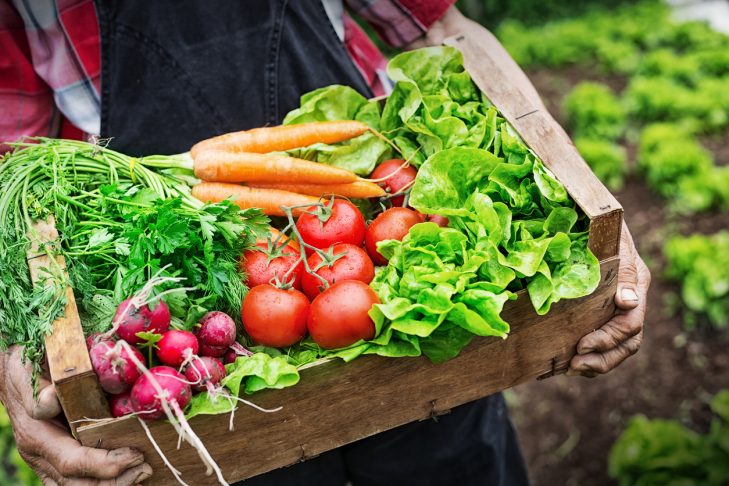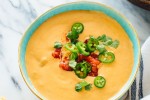Attributed to the “land of milk and honey” and kashrut laws, the practice of eating dairy on Shavuot is a favorite among cheesecake and ice-cream lovers. But what can vegans do to observe the holiday when tradition emphasizes the consumption of animal products?
Because neither milk nor honey are vegan, you can use plant-based substitutions like almond milk for dairy recipes, and maple syrup or agave nectar in place of honey. If you prefer not to reinterpret dairy, enjoy the spring harvest instead. Also known as the “Festival of Weeks,” Shavuot is one of three harvest festivals (the others are Sukkot and Passover), and highlights wheat, barley and the first fruits of the season. “Think about what’s being harvested in your area now,” suggested Rabbi Jillian Cameron of InterfaithFamily/Boston. Enjoy local produce and “celebrate the moment of time you’re in.”
Customs are “an opportunity to be flexible on what you want to do,” Rabbi Cameron said. “Modern Judaism is about creating your own traditions that are meaningful for you.”
That includes the possibility of reinterpreting kashrut. A growing example is the eco-kosher movement, wherein only food from ethical and sustainable sources is consumed. Eco-kashrut spans the Orthodox, Conservative and Reform movements, and rabbis across the spectrum have taken action to change and distinguish how animals and workers are treated. One such way is Magen Tzedek, a voluntary certification food manufacturers may earn that was conceived by Conservative rabbis to “[set] standards for protecting workers and the environment.” Orthodox vegans are on the rise, too.
This is all from the perspective of, as Rabbi Cameron put it, “an ethical piece of the world.” And isn’t that what tikkun olam is all about?
Richard Schwartz, president of Jewish Veg (formerly Jewish Vegetarians of North America), a nonprofit that seeks to “encourage and help Jews to embrace plant-based diets,” takes this further: “Shavuot commemorates the giving of the Torah on Mount Sinai, and it is Torah teachings on preserving human health, treating animals with compassion, protecting the environment, conserving natural resources and helping hungry people that led me to become a vegan and convinced me that Jews should shift toward vegan diets.”
As a vegetarian myself, it never occurred to me to look at my self-imposed dietary restrictions through any sort of religious lens; this is an exploration bred out of curiosity.
“For me, veganism runs on a parallel track with being Jewish, rather than intersecting,” Mark Torrey, a vegan originally from Massachusetts, told me. “That said, I think it aligns well with the tenets of Judaism and feels natural. It can take a little effort to make it work practically, but has rarely gotten in the way during holidays.”
The only caveat to Mark’s last point, based on personal experience, is when holiday hosts—whether organization or family friend—fail to account for the non-carnivores in their midst.
Bostonian Izzy Darby blazed her way around that issue: “My parents are not especially religious, so my relationship to Judaism has always been rooted in food, sharing meals and the sense of community that creates,” she said. “When I decided to stop eating meat, eggs and dairy seven years ago, I realized that I was missing out on a lot of food I had loved growing up. I started creating vegan adaptations of Jewish recipes and writing about them on my blog, Veganizzm, and for the website The Nosher. An added bonus of developing vegan Jewish recipes is that by excluding meat and dairy, many recipes are naturally kosher.”
Regardless of dietary needs, there are many ways to observe holidays, especially where traditions, not laws, are concerned.
“Shavuot is far more than a small custom about the types of food we eat,” Rabbi Philip Sherman of Temple Beth Elohim said. “Go to synagogue, pray, find a Tikkun Leil Shavuot and stay up all night studying. That’s a great way to honor the spirit of Shavuot.”







